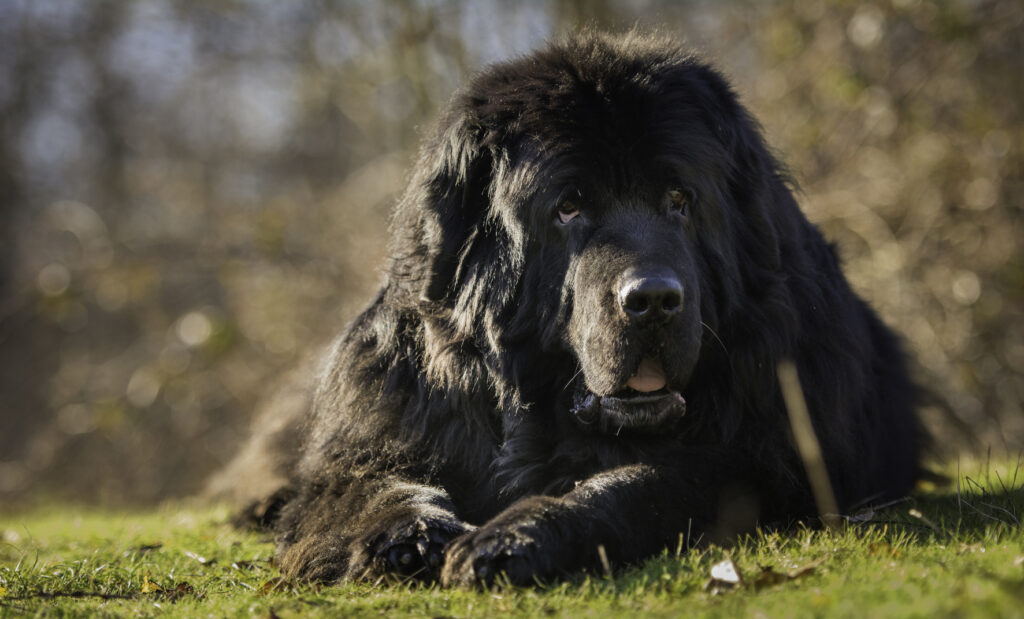Genetics: Subvalvular Aortic Stenosis (SAS) in Newfoundland Dogs
Subaortic stenosis (SAS) is a cardiac disorder with a narrowing of the descending aorta below the left ventricular outflow tract of the heart.
Newfoundland Subvalvular Aortic Stenosis (SAS) Testing Price: $48.00 per dog, or $38.00 per puppy for two or more puppies of the same litter

Newfoundlands have an inherited heart defect referred to as subvalvular aortic stenosis (SAS). This is a defect located below the aortic valve of the heart. Dogs with the severe form of the disease may die suddenly, often before 2 years of age. Your veterinarian may be concerned that your Newfoundland has this trait if they detect a heart murmur when they evaluate your dog. The diagnosis can be confirmed with echocardiography by a veterinary cardiologist. Although it is inherited sometimes the parents can have a very subtle form of the disease that can not be clinically detected.
We identified a genetic mutation for Newfoundland SAS in a gene that encodes for an important cardiac development gene and we recommend screening breeding animals to help remove the prevalence of this mutation in this breed. The disease is referred to as having “incomplete penetrance”. This means that even if a dog has the genetic mutation, the mutation may not actually penetrate or lead to the development in full disease in that dog. DNA test results will indicate if the dog has the mutation on 1 copy of its 2 gene copies (called heterozygous) or both gene copies (homozygous).
Once you run the DNA test we will send you results that state your dog’s results are either:
- Negative – This means that your dog does not have the genetic mutation for Newfoundland SAS it should not be able to pass SAS on to its puppies.
- Positive Heterozygous – This means that your dog has 1 copy of the genetic mutation and 1 copy of a normal gene. Since this is a disease with incomplete penetrance, some dogs with the mutation will not ever show the disease.
Breeding recommendations: If the dog has many other positive trails it may be reasonable to consider breeding these dogs to a Negative dog, screening the puppies and trying to select a Negative puppy to keep as a replacement breeding animal in the next litter or so. Over time this will gradually reduce the prevalence of the disease in the breed. We would never recommend breeding a positive heterozygous dog to a positive heterozygous dog since this could produce homozygous dogs which are very likely to become sick from this disease. - Positive Homozygous– This means that your dog has 2 copies of the genetic mutation and has 100% chance of passing the mutation on to all of its puppies. We would not recommend using these dogs for breeding purposes if possible.